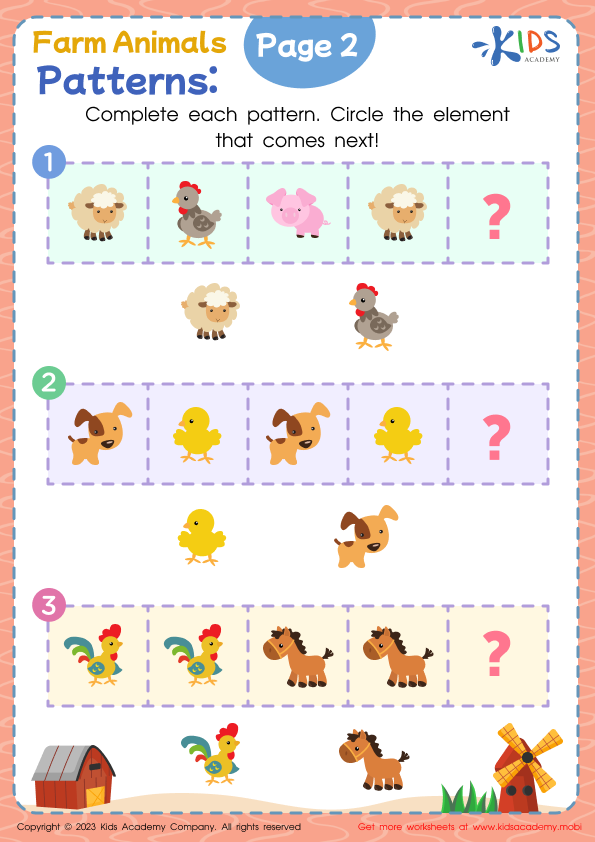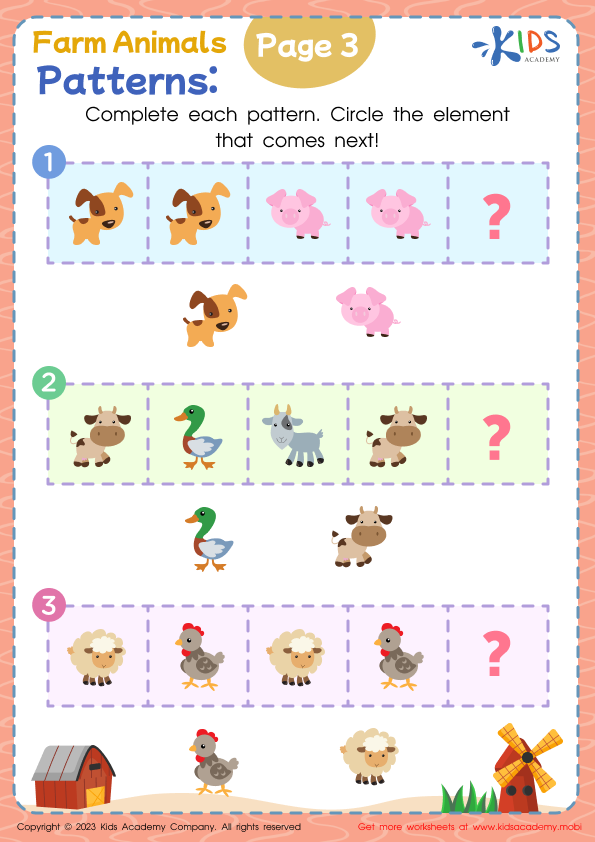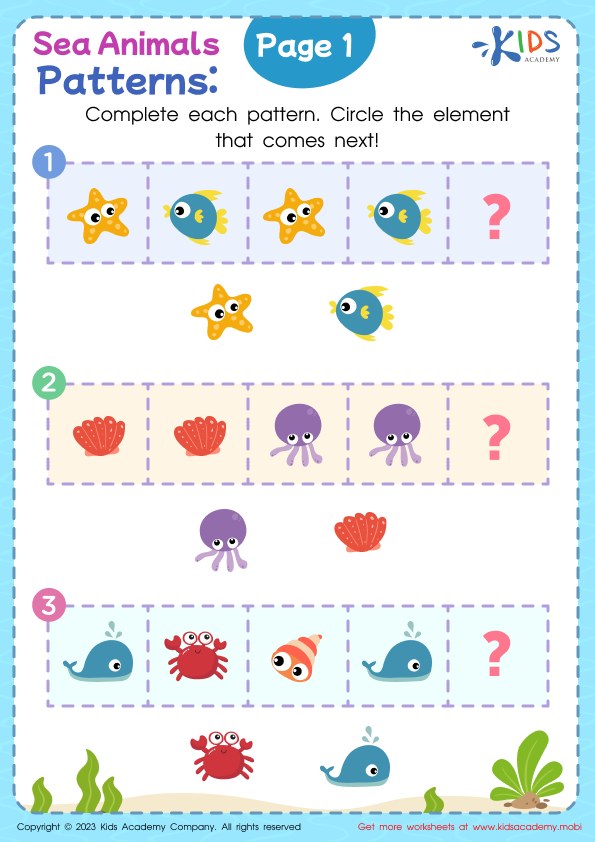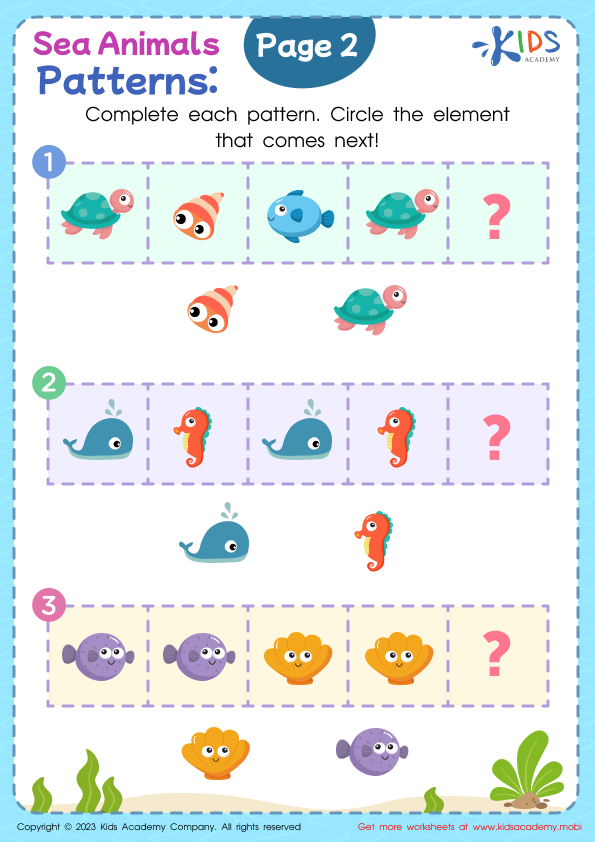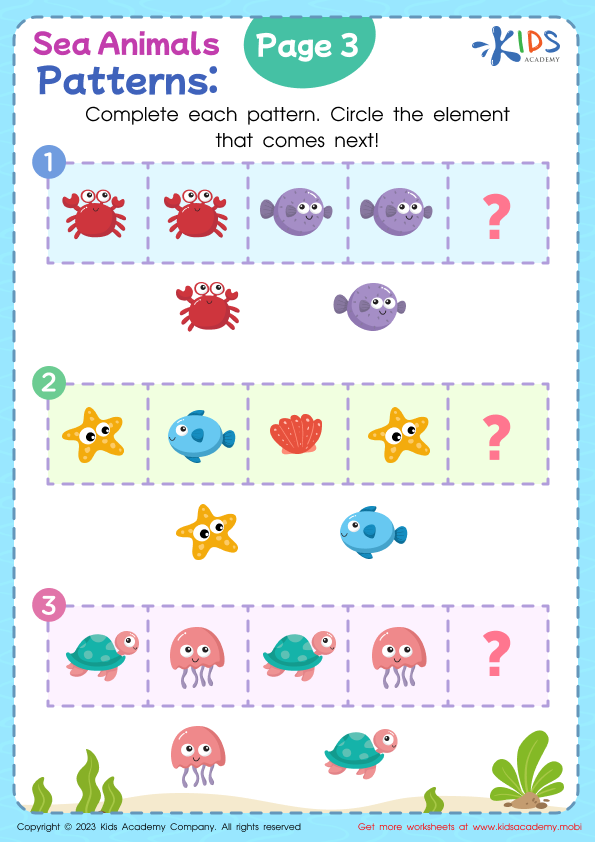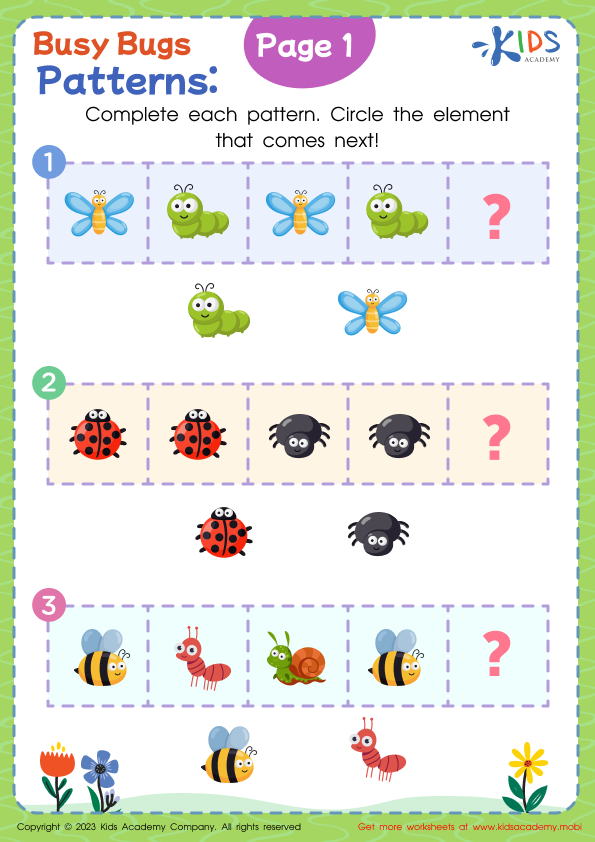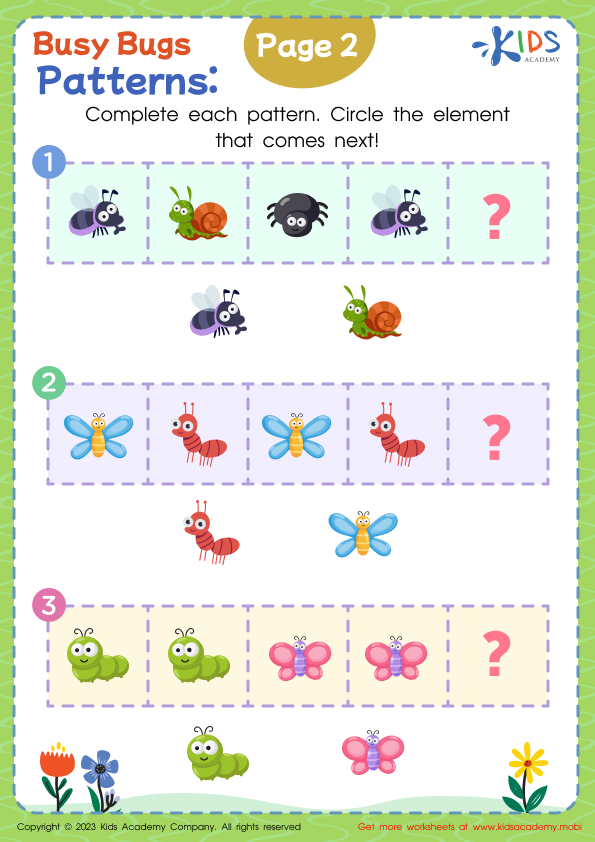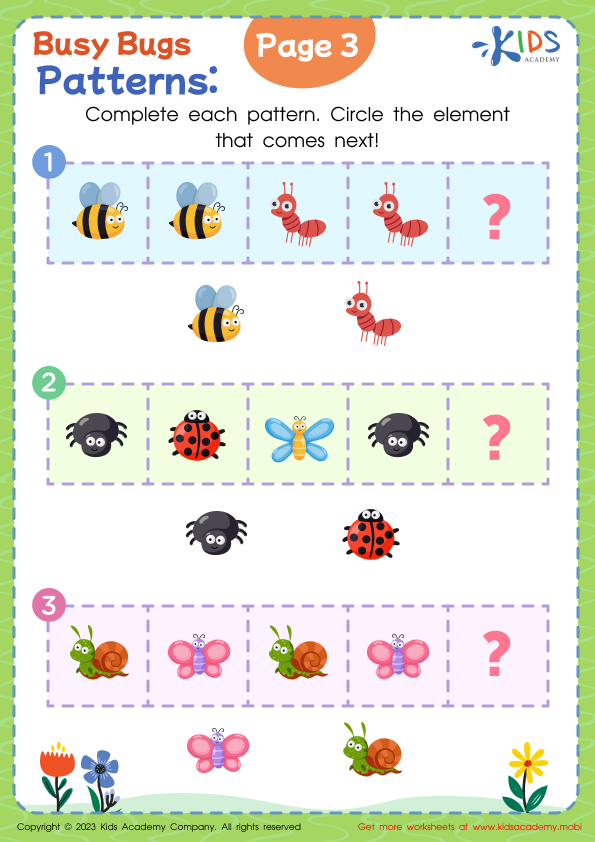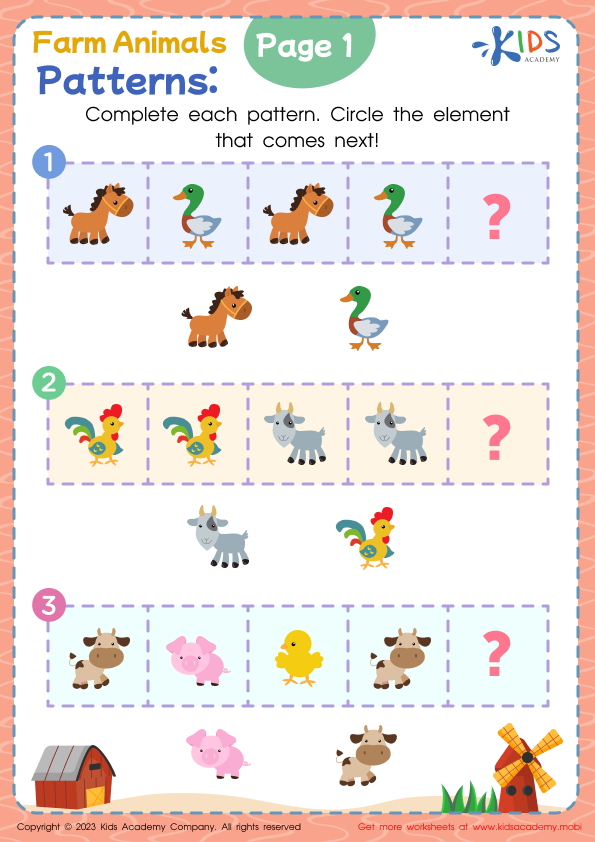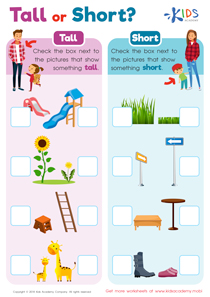Patterns Worksheets for Pre-K
14 filtered results
-
From - To
Enhance your child’s critical thinking and early math skills with our Patterns Worksheets for Pre-K from Kids Academy. Designed for curious preschoolers, these vibrant worksheets introduce young learners to the basics of recognizing, predicting, and creating patterns through engaging activities. Fostering creativity and cognitive development, each worksheet is crafted to make learning fun and age-appropriate. Equip your preschooler with essential problem-solving abilities and a love for learning with our carefully designed patterns worksheets. Discover a resourceful and enjoyable way to support early educational milestones by exploring our curated collection today!
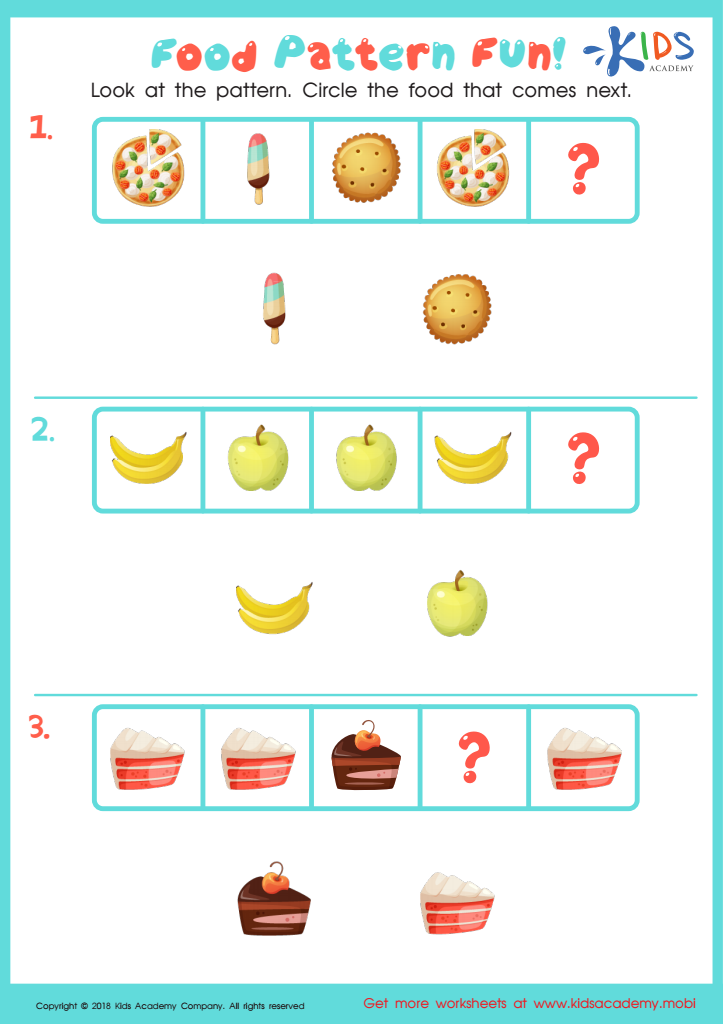

Food Pattern Fun Worksheet
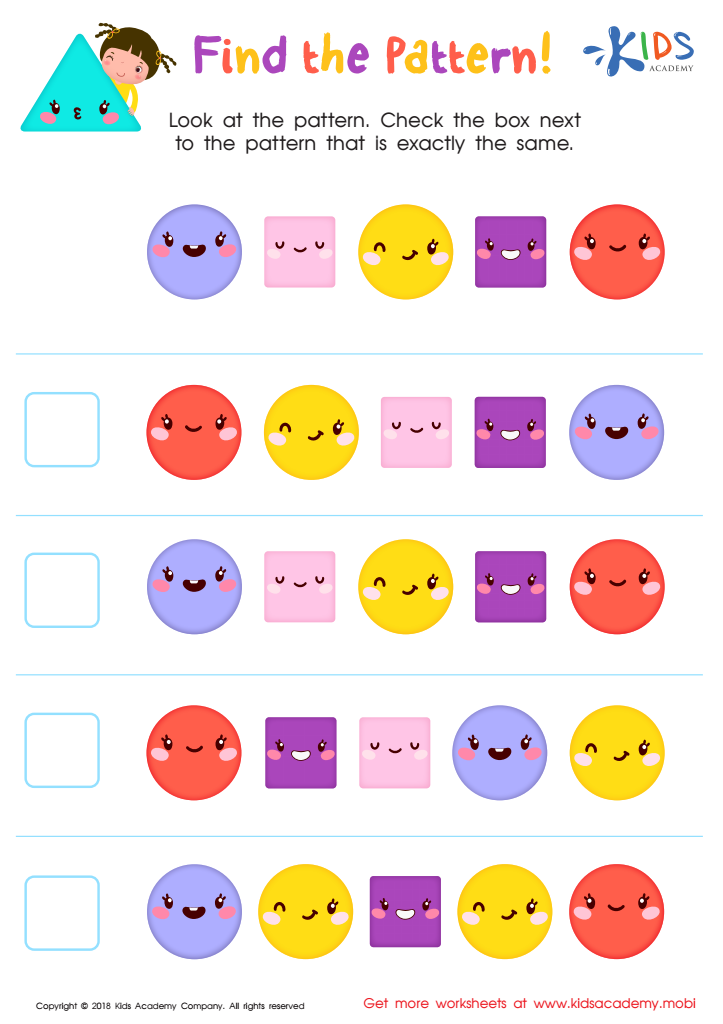

Find the Pattern Worksheet


Make the Same Pattern Worksheet
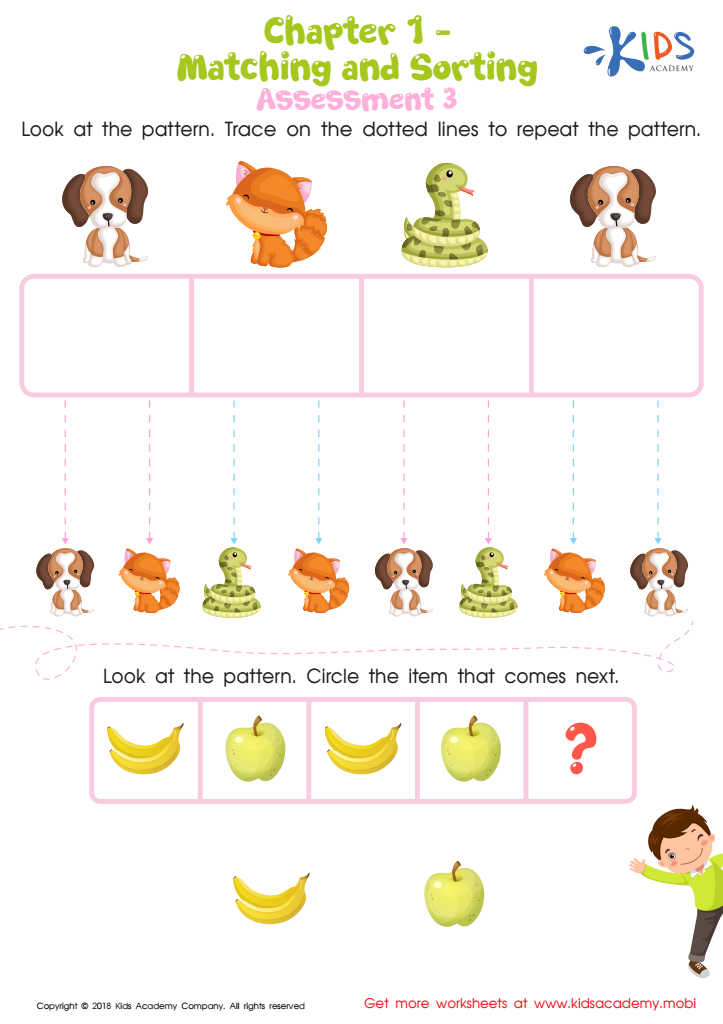

Matching and Sorting for Preschool: Assessment 3 Worksheet
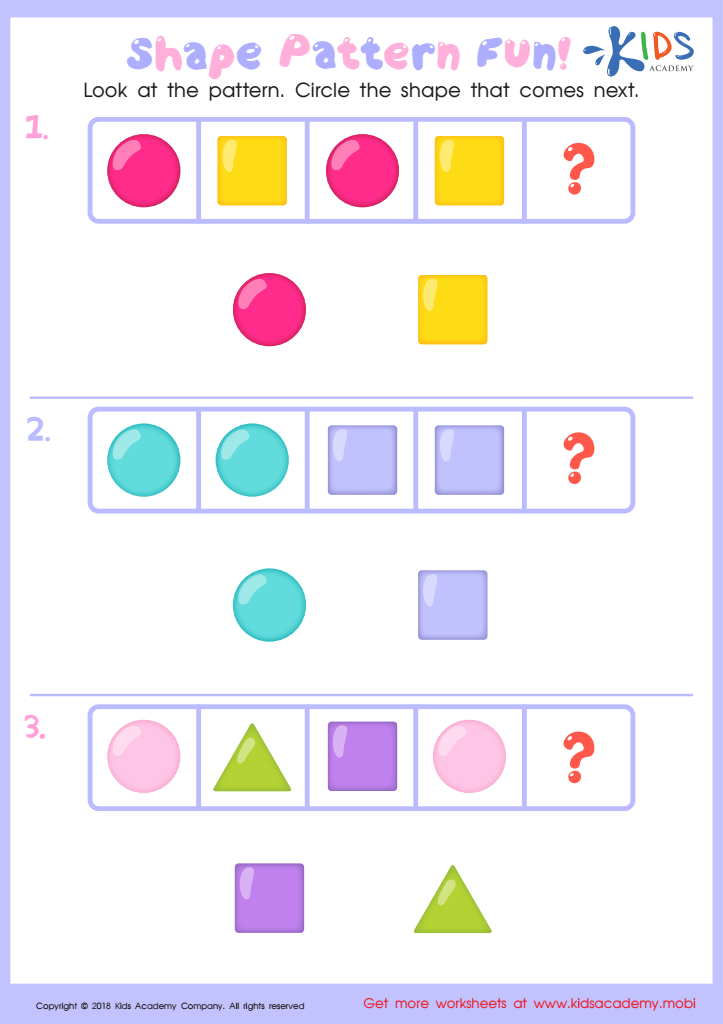

Shape Pattern Fun Worksheet
Patterns are foundational for young children's cognitive development, making their introduction in Pre-K crucial. Recognizing and creating patterns helps children develop important skills in math, literacy, and critical thinking. When children understand patterns, they can predict what comes next, enhancing their ability to solve problems and grasp new concepts efficiently.
Learning patterns nurtures logical thinking and observational skills, foundational for future complex math topics like algebra. For instance, recognizing a repeating sequence—like red, blue, red, blue—lays the groundwork for understanding numerical and letter patterns, essential in multiplication, division, and reading skills.
Patterns also enhance language development. Rhythmic chants or songs help children grasp the structure and rhythm of language, improving their literacy skills and linguistic awareness. Additionally, pattern recognition encourages fine motor and social skills, as children often work collaboratively on projects involving patterns, learning to communicate and work with others effectively.
Introducing patterns in playful, engaging manners—using blocks, beads, or musical activities—makes learning enjoyable and deeply embedded. Parents and teachers should prioritize patterns because they nurture holistic development, setting children up for academic success and a greater understanding of the world’s innate structures. In essence, patterns are tiny introductions to logic, order, and prediction, forming a vital part of early childhood education.
 Assign to My Students
Assign to My Students

